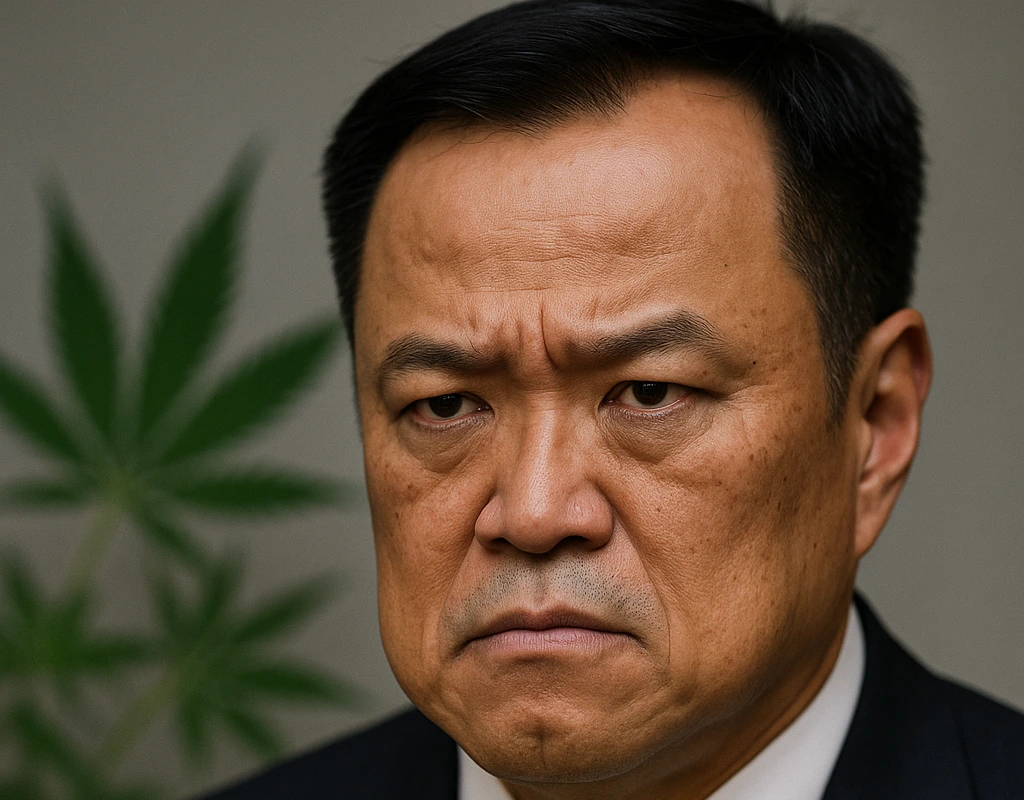Anutin Charnvirakul cannabis policy, Thailand cannabis policy 2025, Thai dispensary regulations, Thailand cannabis reform risks, future of cannabis in Thailand, Anutin Charnvirakul coalition stability,
 Brajesh Mishra
Brajesh Mishra

Thailand’s politics is once again in the spotlight with Anutin Charnvirakul becoming Prime Minister. He is known worldwide for driving cannabis decriminalization in 2022. But in 2025, his challenges look very different: fragile politics, public anger over cannabis, and an economy losing steam. The next few months will test his ability to survive and to steer Thailand’s future.
Anutin’s government rests on weak ground. His coalition survives only with conditional support from reformist allies who want new elections soon. In Thailand, such fragile deals have collapsed before, stalling reforms. Courts also have wide powers to remove leaders, creating constant instability.
Still, there is an opening. If reforms move forward, Anutin could be remembered for strengthening Thailand’s democracy. Much will depend on whether he can keep allies together and win a stronger mandate.
Cannabis reform, once Anutin’s proudest achievement, is now his biggest risk. Surveys show most Thais want stricter rules, worried about youth use and uncontrolled dispensaries. Recent measures restrict sales to prescriptions, ban edibles, and threaten small shops with closure.
Yet, there are chances too. A clear medical framework could make cannabis a stable industry. Special “cannabis zones” for tourists may balance economic gains with health safeguards.
Thailand’s economy faces long-term problems: weak growth, high debt, and falling competitiveness. Forecasts suggest growth may stay under 3% through 2027.
But there are bright spots. Mega projects like the Eastern Economic Corridor could attract investment. Digital cash-transfer schemes may give short-term relief to households. Experts agree that deeper reforms in education, digital systems, and small-business support are key to breaking out of stagnation.
The rapid rollout of cannabis divided the nation. Youth use has risen, alarming parents and health officials. Small dispensaries, once booming, now fear ruin under tighter rules. Many say policy changes are unfair to those who invested under earlier promises.
The government must rebuild trust. Health-first regulation, stronger controls, and clear education campaigns could steady the policy. Without balance, the debate will swing back and forth, leaving both citizens and business owners frustrated.
Anutin also faces pressure abroad. Fresh clashes on the Cambodia border have stirred nationalism and disrupted trade. At the same time, Thailand must balance ties between China and the United States, both seeking influence in the region.
ASEAN-led dialogue could ease tensions. Careful diplomacy might also turn Thailand into a regional bridge, but missteps could expose its weakness.
Anutin Charnvirakul stands at a crossroads. His cannabis reform, once bold, is now under fire. His coalition is shaky, his economy slow, and his borders unstable. Yet, these challenges also offer chances. With steady reforms, strong diplomacy, and balanced cannabis rules, he could turn uncertainty into progress.
The coming months will decide if his leadership is remembered as a turning point—or as the fading high of an unfinished experiment.






Sign up for the Daily newsletter to get your biggest stories, handpicked for you each day.
 Trending Now! in last 24hrs
Trending Now! in last 24hrs



